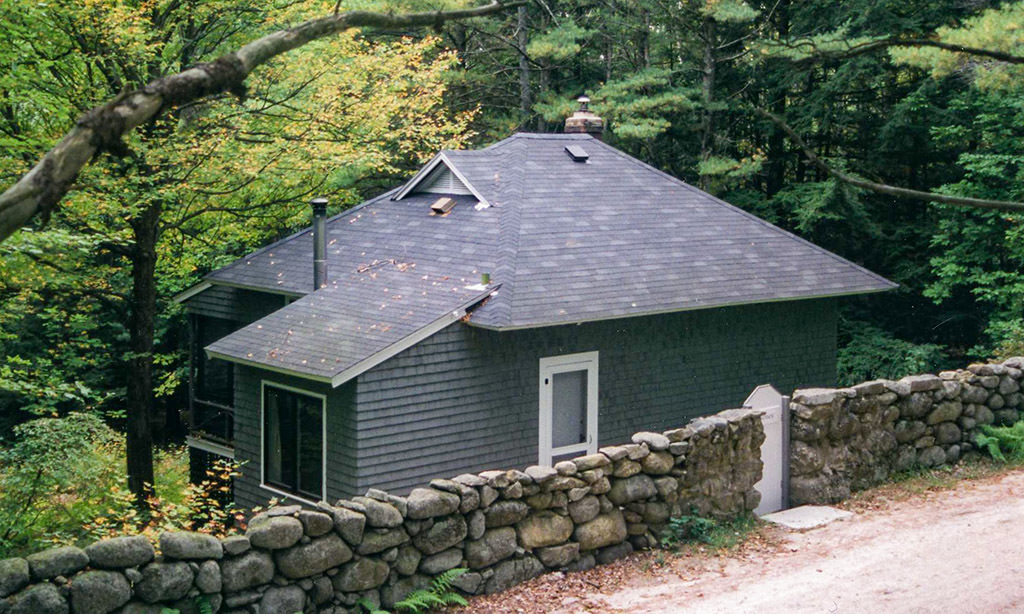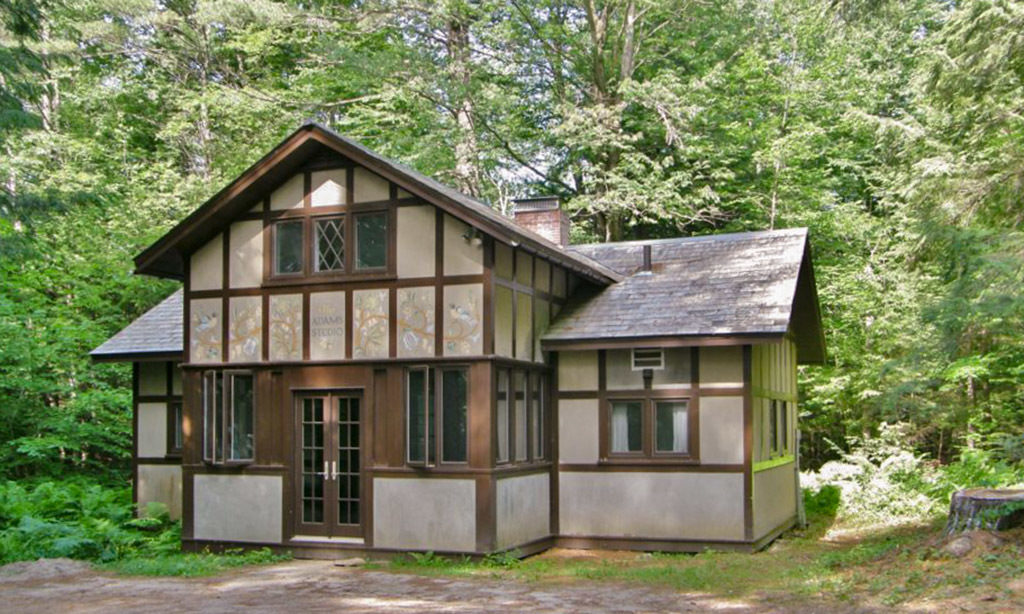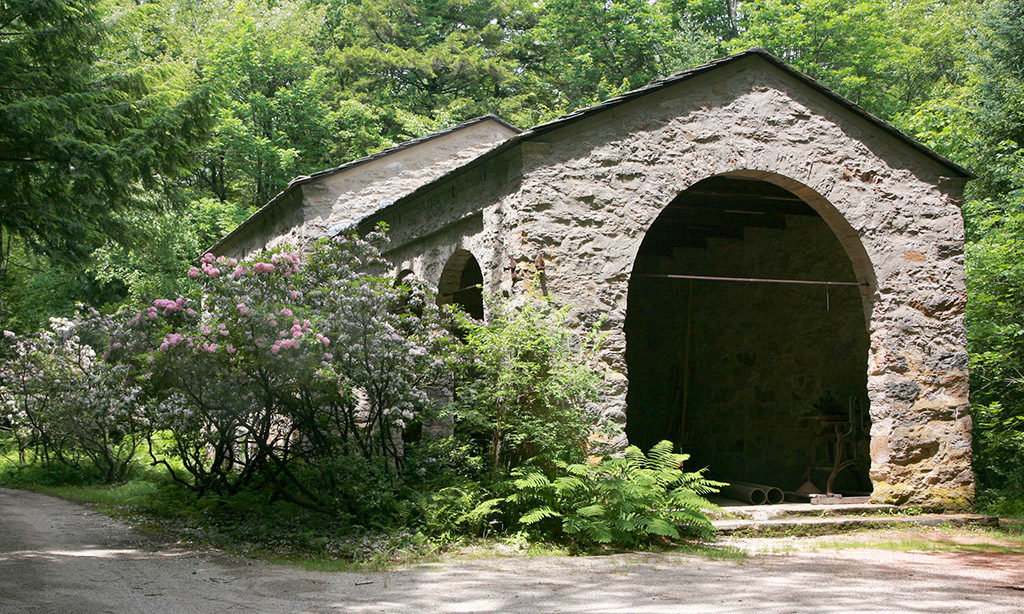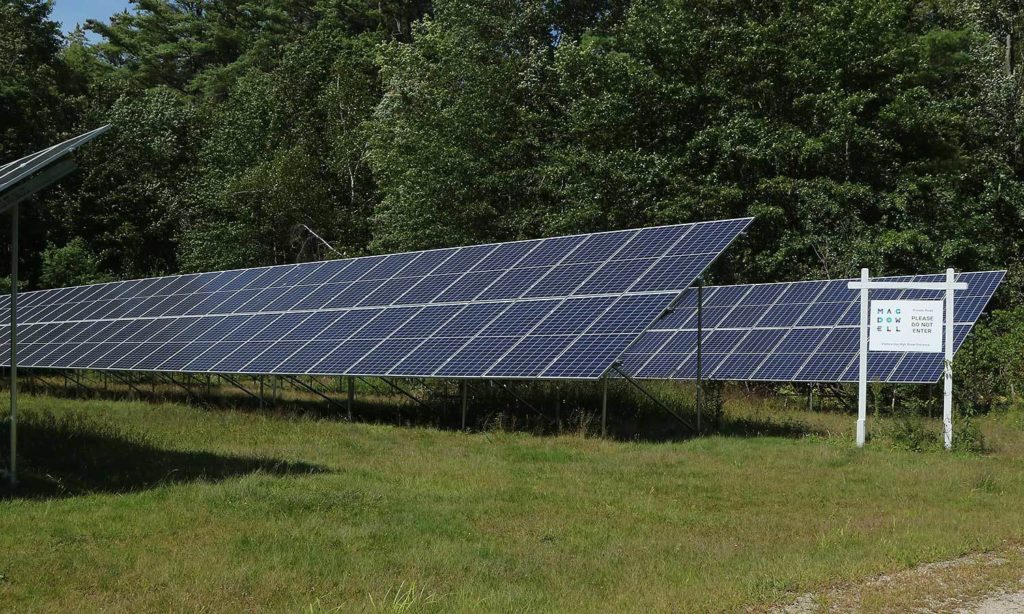With a new grant from the Helen Frankenthaler Foundation, MacDowell will eliminate the need to purchase and burn 2,200 gallons of heating oil, per year.
Three century-plus-old MacDowell studios for visual artists are going electric, all electric that is. A $77,500 implementation grant as part of the Frankenthaler Climate Initiative (FCI) will fund the decommissioning of fossil fuel-based heating systems in Cheney, Adams, and Alexander studios – opened in 1910, 1915, and 1922, respectively – and represent a big leap toward MacDowell’s goal of having a zero-emission campus by 2035.
Working with a local mechanical contractor in 2023, MacDowell will install electric heat pumps (EHP), also known as ductless or mini-split systems, in each studio, replacing three fuel-oil boilers. The oil consumed for the heating of all three studios was, on average, 2,200 gallons per year, which means the three heat pump conversions will avert an estimated 52,800 lbs. (24 metric tons) of CO2 from the earth’s atmosphere every year. A typical gasoline-powered passenger vehicle emits about 4.6 metric tons of CO2 per year, according to the EPA.
Over the last 30 years, MacDowell has invested more than $10 million in renovating its buildings and infrastructure, while prioritizing energy conservation. This latest phase of MacDowell’s electrification project also aligns with the organization’s established values of caring for its land, physical plant, endowment, and community. The new EHP systems will draw electricity from the local grid and MacDowell’s solar arrays, which generate more power than MacDowell’s Peterborough campus consumes annually. The heat pumps will also give artists-in-residence the ability to both heat and cool their studios, a welcome comfort after New Englanders experienced numerous temperature records throughout the sweltering summer of 2022.
The Helen Frankenthaler Foundation’s FCI grant is allowing MacDowell to accelerate the implementation of the electric heating and cooling systems for the three studios, ensuring that several thousand gallons of fuel oil will not be burned. The additional EHP conversions will also mean that half of the 10 MacDowell studios used by visual artists will have the systems and bring the residency’s total EHP conversions for studios to seven; Delta Omicron, Eastman, Firth, and Mansfield were the first four.
“MacDowell is thrilled to be part of a unique initiative by the Helen Frankenthaler Foundation to help visual arts institutions reduce carbon emissions,” said MacDowell Institutional Giving Manager Betty Leigh Hutcheson. “This grant not only brings much-needed funds to help MacDowell go green but also recognizes our long-term efforts to reach carbon neutrality. Thanks to the Foundation’s commitment to climate action, MacDowell can reach its environmental goals more quickly and continue to be good stewards of our residency campus.”
A $10-million, multi-year initiative launched in 2021, FCI is the largest private national grant-making program that supports climate change action at cultural institutions. The Helen Frankenthaler Foundation developed the initiative in partnership with RMI, a nonprofit aiming to decarbonize the energy sector, and Environment & Culture Partners, a nonprofit that aims to strengthen environmental leadership in the culture sector. In addition to MacDowell, the 49 FCI grant recipients this year include Museum of Modern Art in New York, Storm King Art Center, Yale University Art Gallery, Museum of Contemporary Art in Los Angeles, and the Judd Foundation.
Key facts:
- MacDowell studios set to have fuel-oil boilers replaced by electric heat pumps: Cheney, Adams, and Alexander
- Fuel oil no longer burned after project completion: 2,200 gallons
- CO2 averted from atmosphere, annually: 52,800 lbs. (24 metric tons)
- Duration of ideal working conditions enabled: Forever





